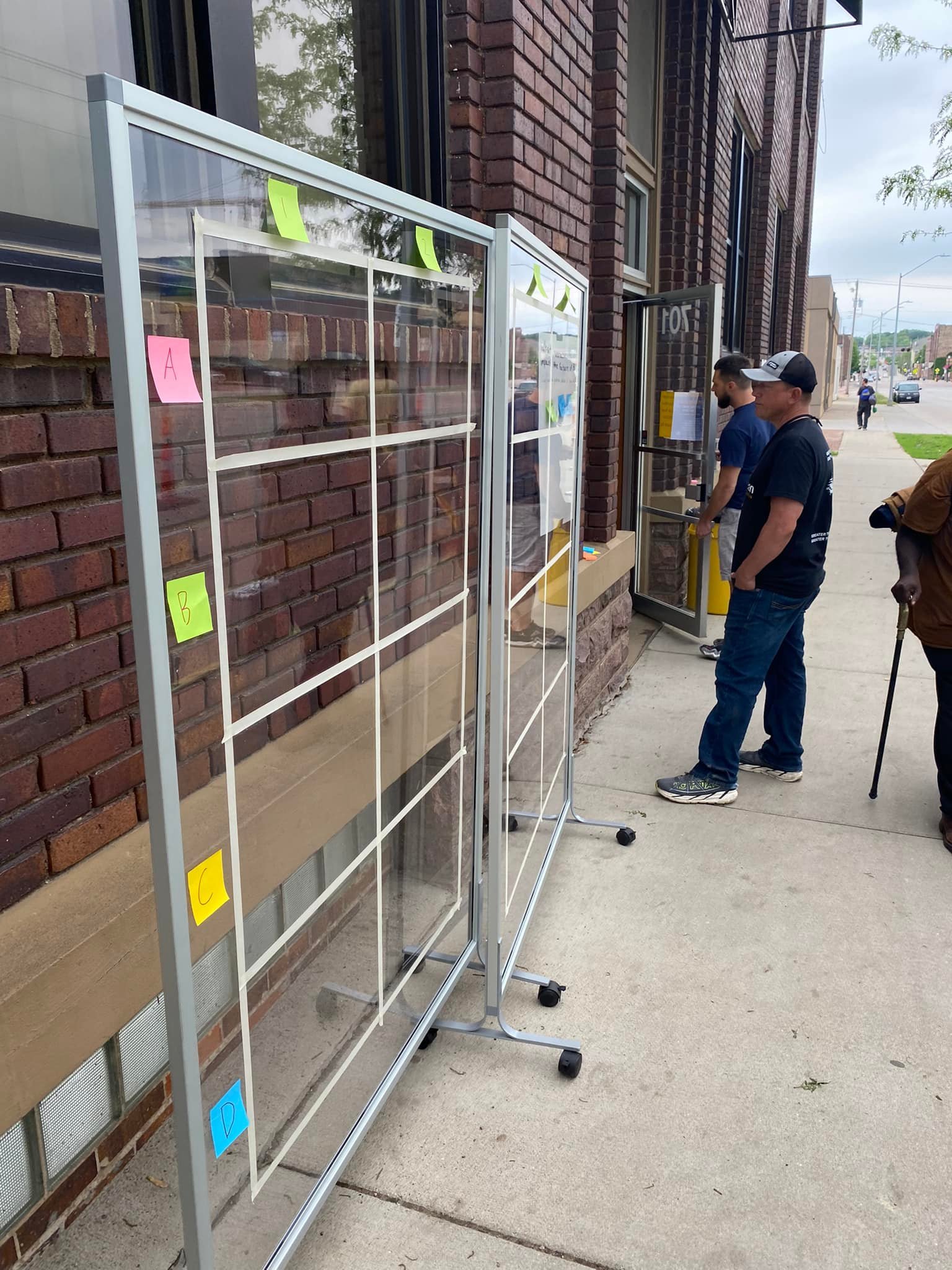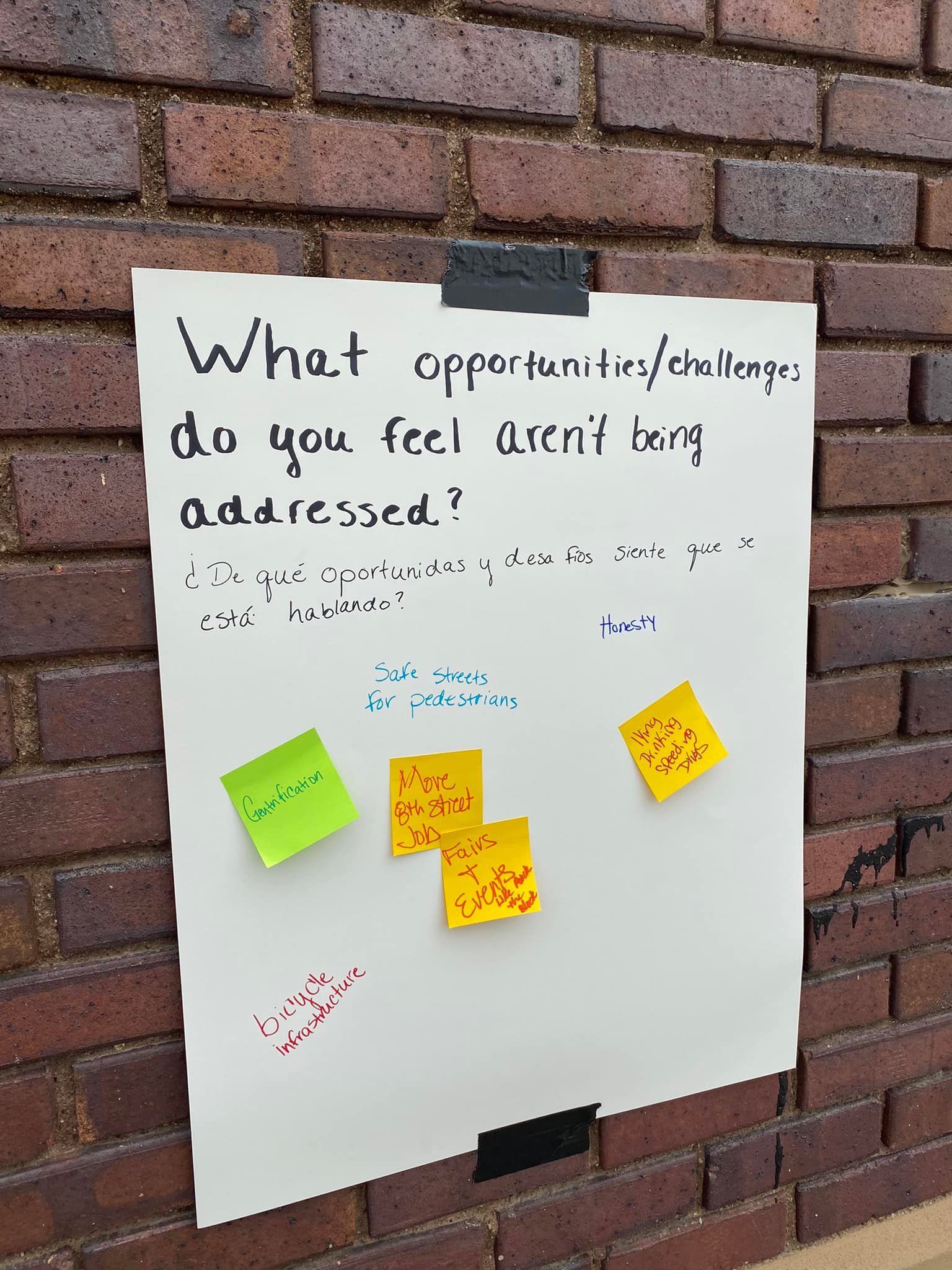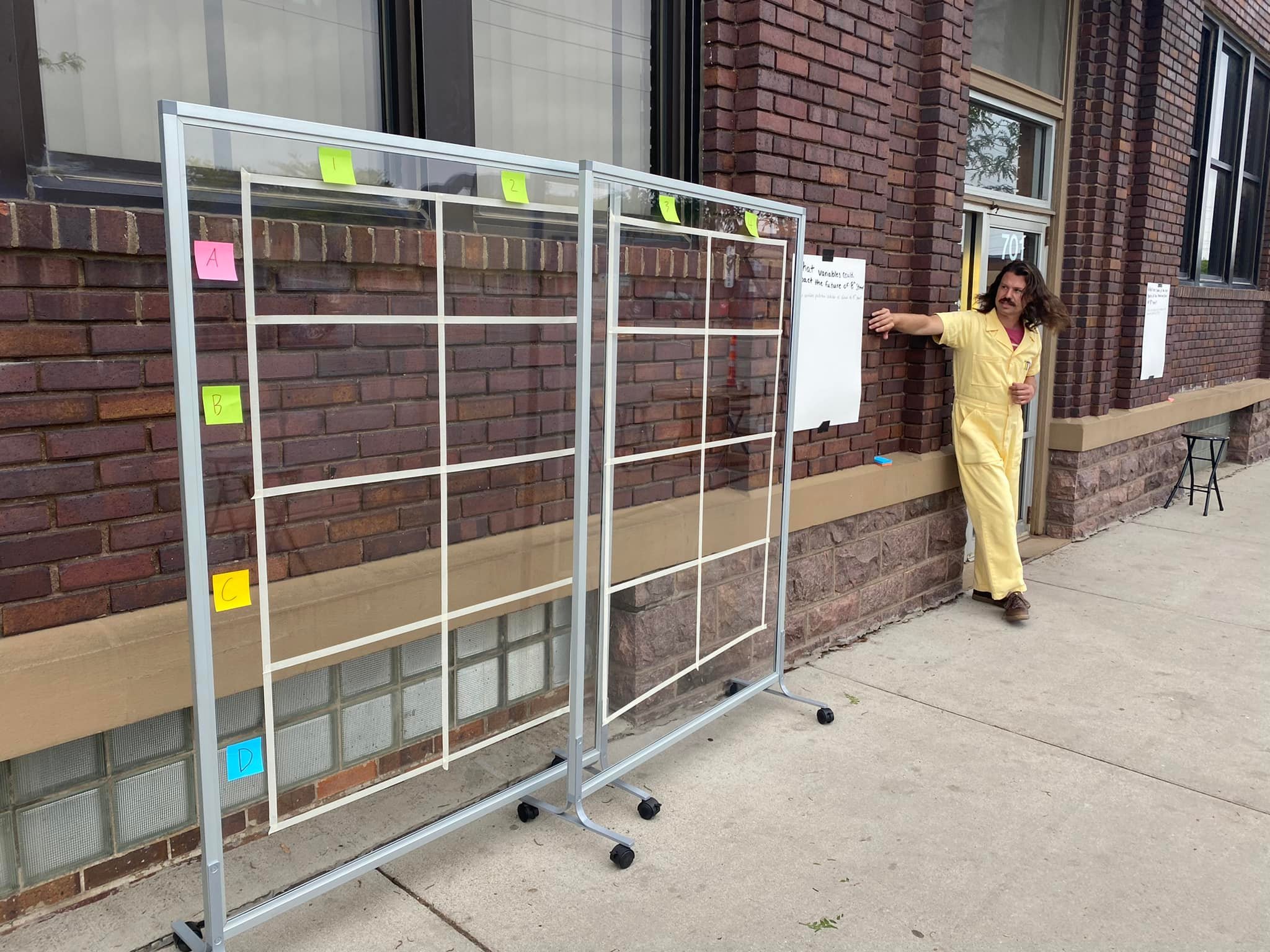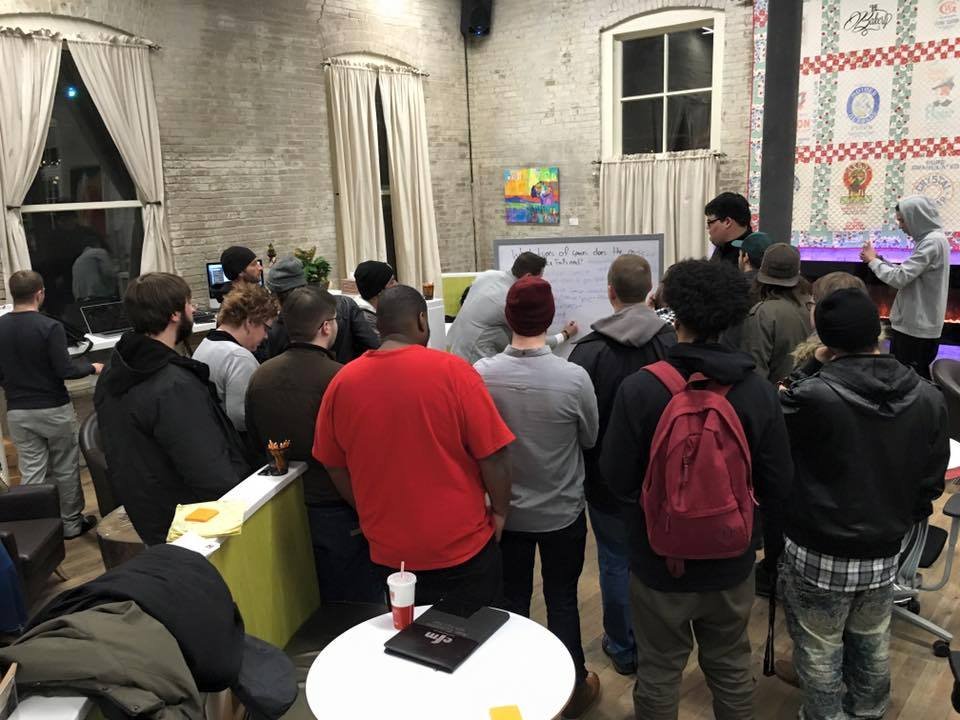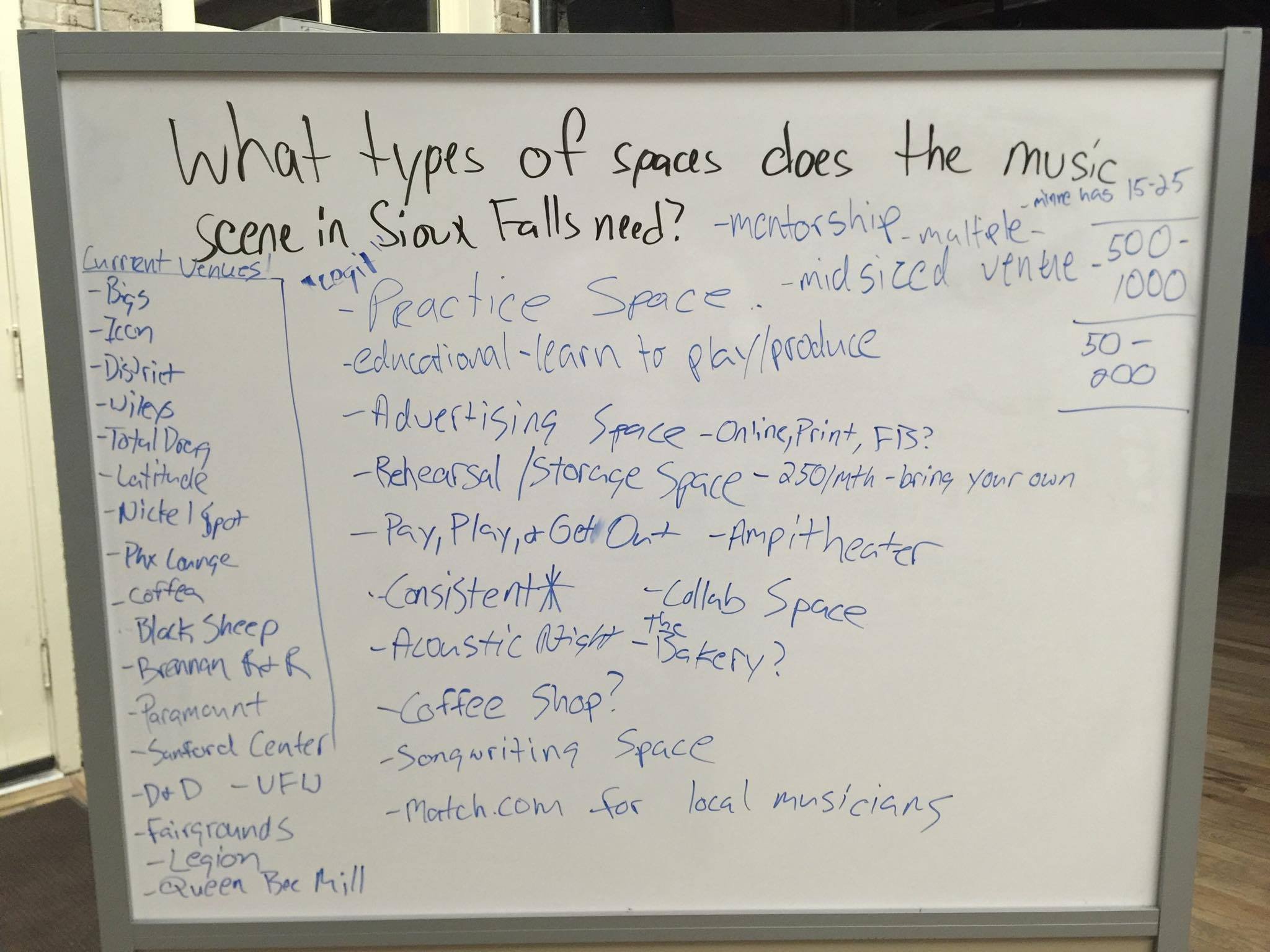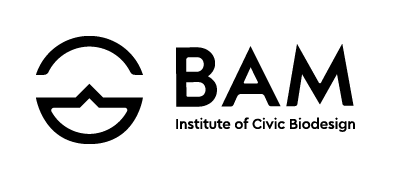
Future Forums
History
Future Forums were initially developed in 2015 by Clinton Brown for The Bakery coworking facility in Sioux Falls, SD, to host complex multi-side discussions with many participants. He was advised by Melissa Goodwin, a technology innovator in Sioux Falls.
In 2017, he added Open Space Technology formats to the Future Forums and began hosting them with Jordan Deffenbaugh throughout Sioux Falls and the surrounding region.
Since its beginning, Future Forums has hosted community conversations about everything from transportation to local food production.
Clint and Jordan brought this new hybrid format to the BAM Foundation in 2020.
What is Open Space Technology?
Open Space Technology (OST) is a facilitation technique that enables a self-organizing group to address complex issues, explore ideas, and foster innovation. Developed by organizational consultant Harrison Owen in the 1980s, OST is particularly effective when dealing with diverse and dynamic topics where multiple perspectives are valuable.
Key features of a Future Forum
Self-Organization: FF meetings are characterized by a lack of a formal agenda. Instead, participants create the agenda themselves at the beginning of the event. They propose topics or issues they are passionate about or interested in discussing.
Future Forum: The meeting space is open, both physically and intellectually. Participants are free to move between different discussions, engaging in the topics most interesting. This fluidity encourages a dynamic exchange of ideas.
Facilitator's Role: The facilitator's role in an FF meeting is minimal. Their main responsibility is introducing the process, explaining the principles, and then stepping back to allow participants to take charge. The facilitator might provide guidance, but the energy and direction of the discussions come from the participants.
"Law of Two Feet": Participants are encouraged to use their "two feet" to move between discussions. If they find themselves in a conversation that isn't meaningful or relevant to them, they are free to leave and join another discussion.
Documentation: While there may not be a predefined agenda, participants are encouraged to document the discussions and outcomes. This documentation can take various forms, such as notes, drawings, or other creative outputs. It helps capture the collective knowledge generated during the event.
Final Gathering: Towards the end of the meeting, there is a final gathering where participants share insights, key learnings, and potential action items. This is an essential part of bringing diverse ideas and discussions together.
Future Forums are often used in settings such as conferences, workshops, and organizational retreats where there is a need to tap into a group's collective intelligence. It is suitable for addressing complex issues, fostering collaboration, and promoting innovation by allowing participants to explore topics that matter most to them. The method is based on the belief that those who care about a particular issue are best suited to address it.
Download the Guide
Lead your own Future Forum with our simple printable guide.
What are Future Forums best used for?
Future Forums (FF) are best used for addressing complex issues, fostering collaboration, and promoting innovation in situations where:
Diverse Perspectives are Valuable: FF is effective when dealing with topics requiring input from diverse participants. The method allows people with different backgrounds, experiences, and perspectives to collaborate and contribute to the discussion.
Complex Problems Exist: It is well-suited for addressing complex, multifaceted problems that may need clearer or more straightforward solutions. FF's open and self-organizing nature encourages participants to explore different aspects of an issue and collaborate on finding creative solutions.
Need for Rapid Innovation: In situations where quick and innovative solutions are essential, FF provides a platform for generating ideas and insights quickly. The self-directed nature of the process allows participants to focus on the issues that matter most to them.
Desire for High Engagement: FF is designed to maximize participant engagement. Allowing individuals to choose and participate in discussions that align with their interests and expertise fosters a sense of ownership and commitment to the outcomes.
Building Community and Relationships: When building or strengthening relationships within a group is needed, FF provides a space for meaningful interactions. Participants have the opportunity to connect with others who share similar interests or concerns.
Exploration of Emerging Topics: FF is well-suited for exploring emerging or unfamiliar topics where traditional meeting structures may not be as effective. It encourages participants to explore new ideas and potential solutions collaboratively.
Organizational Change and Development: In the context of organizational change or development, FF can be used to engage employees in discussions about the future direction of the organization, foster a culture of innovation, and facilitate buy-in from participants.
Knowledge Sharing and Learning: When there is a need to share knowledge and experiences within a group, FF provides a platform for participants to discuss and learn from each other. The open format encourages the exchange of insights and best practices.
Overall, Future Forums is a versatile approach that empowers participants to take ownership of the conversation, make meaningful contributions, and collectively address complex challenges. It is particularly beneficial when the traditional, top-down meeting structure may not be as effective in harnessing a group's collective intelligence.
When are Future Forums the best meeting format to use?
Future Forums (FF) are considered the best meeting format to use in several scenarios, mainly when the following conditions are present:
Complex and Uncertain Issues: FF is most effective when dealing with complex, uncertain, or multifaceted issues that may not have clear solutions. It allows participants to explore diverse perspectives and generate creative responses to challenges.
Diverse Stakeholders: When a group of participants with diverse backgrounds, experiences, and expertise needs to come together to address a common issue, FF provides an inclusive platform. It encourages collaboration and draws on the collective intelligence of the entire group.
Need for Innovation and Creativity: If the goal is to foster innovation, creativity, and the generation of new ideas, FF is well-suited. The self-organizing nature of the process allows participants to focus on topics that inspire them and contribute to out-of-the-box thinking.
High Levels of Engagement Desired: FF is ideal when high levels of participant engagement are desired. Allowing individuals to choose the discussions that align with their interests, it encourages a sense of ownership and commitment, leading to more engaged and invested participants.
Time Constraints: FF can be efficient when time is limited, and there is a need to cover a broad range of topics or issues. The lack of a predefined agenda and the ability for multiple discussions to co-occur make it possible to explore a variety of subjects in a relatively short timeframe.
Desire for Inclusivity and Empowerment: If the objective is to create an inclusive environment that empowers participants to take responsibility for the meeting outcomes, FF is an excellent choice. It allows individuals to self-select into discussions where they can contribute meaningfully.
Emergent or Unpredictable Topics: When dealing with emergent or unpredictable topics that may evolve during the course of the meeting, FF's adaptability is valuable. Participants can respond to emerging issues in real-time, making it suitable for dynamic and evolving situations.
Community Building and Relationship Building: FF effectively builds a sense of community and strengthens relationships among participants. It provides opportunities for networking, collaboration, and the sharing of experiences and insights.
Organizational Change Initiatives: In the context of organizational change, FF can be a powerful tool for engaging employees in conversations about the organization's future, fostering a culture of innovation, and promoting employee buy-in.
Knowledge Sharing and Learning Events: When the goal is to facilitate knowledge sharing and learning among participants, FF allows for exchanging insights and best practices. Participants can discuss topics that align with their interests and expertise, promoting mutual learning.
In summary, Future Forums are the best meeting format when dealing with complex issues, diverse groups, a desire for innovation and creativity, high levels of participant engagement, time constraints, and the need for inclusivity and empowerment. Its adaptability and participant-driven approach make it well-suited for dynamic and evolving situations.
Download the Guide
Lead your own Future Forum with our simple printable guide.
What outcomes can I expect from a Future Forum?
A Future Forum (FF) meeting is designed to be dynamic and participant-driven, leading to a variety of outcomes that contribute to the exploration, discussion, and resolution of complex issues. While the specific outcomes can vary based on the nature of the meeting and the topics discussed, here are common outcomes you can expect:
Rich and Diverse Discussions: Participants engage in rich, diverse discussions that reflect their varied perspectives and expertise. The open format allows for a broad range of topics to be explored simultaneously.
Innovative Solutions and Ideas: The self-organizing nature of FF fosters creativity and innovation. Participants often generate many ideas and potential solutions to the challenges presented, drawing on the group's collective intelligence.
Enhanced Collaboration: FF encourages participant collaboration. As individuals move between discussions, they share insights and perspectives, fostering a sense of teamwork and mutual understanding.
Increased Participant Engagement: Participants actively engage in discussions that align with their interests and expertise. This high level of engagement contributes to a sense of ownership and commitment to the outcomes of the meeting.
Actionable Plans and Initiatives: The discussions often lead to the development of actionable plans, initiatives, or projects. Participants may identify concrete steps that can be taken to address the issues at hand.
Networking and Relationship Building: FF provides ample networking and relationship-building opportunities. Participants connect with others with similar interests, forming valuable professional relationships extending beyond the meeting.
Documentation of Insights: Participants document their discussions, key insights, and outcomes. This documentation serves as a valuable record of the collective knowledge generated during the meeting and can be used for future reference.
Identified Priorities and Focus Areas: Through the discussions and interactions, participants may identify priorities and focus areas that require further attention or resources. This helps in clarifying areas of emphasis for ongoing efforts.
Increased Organizational Learning: The open and collaborative nature of FF promotes organizational learning. Participants share experiences, best practices, and lessons learned, contributing to the overall knowledge base of the group.
Empowered and Inspired Participants: Participants often leave the meeting feeling empowered, inspired, and motivated to take action. The sense of having actively contributed to the discussions and outcomes can lead to a heightened sense of purpose.
Adaptability to Emerging Issues: FF allows for adaptability to emerging issues. Participants can respond to changing circumstances or unexpected challenges in real-time, ensuring that discussions remain relevant and timely.
Positive Organizational Culture: Successful FF meetings contribute to developing a positive organizational culture characterized by openness, collaboration, and a willingness to explore new ideas and approaches.
It's important to note that the outcomes of an FF meeting are not predetermined, as the process relies on the self-organization of participants. The success of the meeting is often measured by the extent to which participants feel they have addressed the issues that matter to them and have contributed meaningfully to the group's collective goals.
